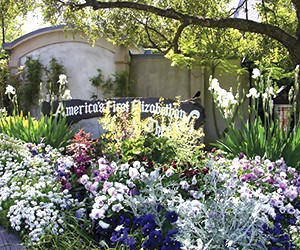Not only do Oregon’s microbreweries and wineries turn out acclaimed beverages, but many are also at the forefront of sustainability.
At Sokol Blosser Winery (www.sokolblosser.com) in the Willamette Valley, green practices figure into everything from its use of organically grown grapes to its 2002 completion of the world’s first LEED-certified wine storage cellar, according to co-president Alison Sokol Blosser. Next on the agenda for the winery is a new tasting room with expansive vineyard views designed by a noted Portland architect, which will be available for private events when it opens in July 2013.
For groups that request it, the winery will lead tours and seminars on wine education that include its approach to sustainability. The winery accommodates on-site lunches for groups and also collaborates with chefs for wine-pairing dinners held at Portland restaurants.
“When we do events here at the winery, we work with Bon Appetit, a caterer that puts an emphasis on fresh food from local farms,” Sokol Blosser says.
Wine tasting in the midst of the vineyards is a specialty of Sokol Blosser Winery, she adds.
“Wines reflect the sun exposure and soil conditions in different areas of the vineyards, so it’s an interesting experience to taste and compare them right on the sites where they originated,” Sokol Blosser says. “It’s a real hands-on education.”
Also in the Willamette Valley, Domaine Drouhin Oregon (www.domainedrouhin.com) features Pinot Noir and Chardonnay wines handcrafted by fourth-generation winemaker Veronique Drouhin-Boss. The entire 225-acre estate is certified sustainable by the LIVE organization and features the largest solar panel system in the Oregon wine industry. Tours for small groups explore the four-story gravity flow winery, focusing on what makes Pinot Noir and Chardonnay from Oregon similar and yet different from those produced in France. Following the tour, participants taste various wines accompanied by artisanal cheeses.
Pursuit of hoppiness
Finding sustainable brews in Oregon is easy, particularly because Oregon and southern Washington produce most of the hops, the major beer ingredient, grown in the U.S., says Marcus Hibdon, spokesman for Travel Portland.
“So the carbon footprint for our beer is smaller than in other parts of the U.S. where the ingredients have to be shipped long distance by truck,” he says. “Also, many breweries here use organic ingredients to create organic beers.”
Both Hibdon and Amy Spatrisano of MeetGreen single out Hopworks Urban Brewery in Portland as a leader in sustainability. The brewery’s group-friendly restaurant serves organic food and beer, and is located in a repurposed building constructed from reclaimed materials. The restaurant captures heat from its pizza ovens to heat the water used in brewing, and the spent grains from beer production are given to local farmers to feed their livestock.
Also recommended by Hibdon and Spatrisano is Bridgeport Brewery (www.bridgeportbrew.com), Portland’s longest operating brewery and producer of Bridgeport IPA, the most popular craft beer in the city. With an on-site restaurant featuring locally sourced foods, Bridgeport can accommodate large groups for meals and brewery tours.




